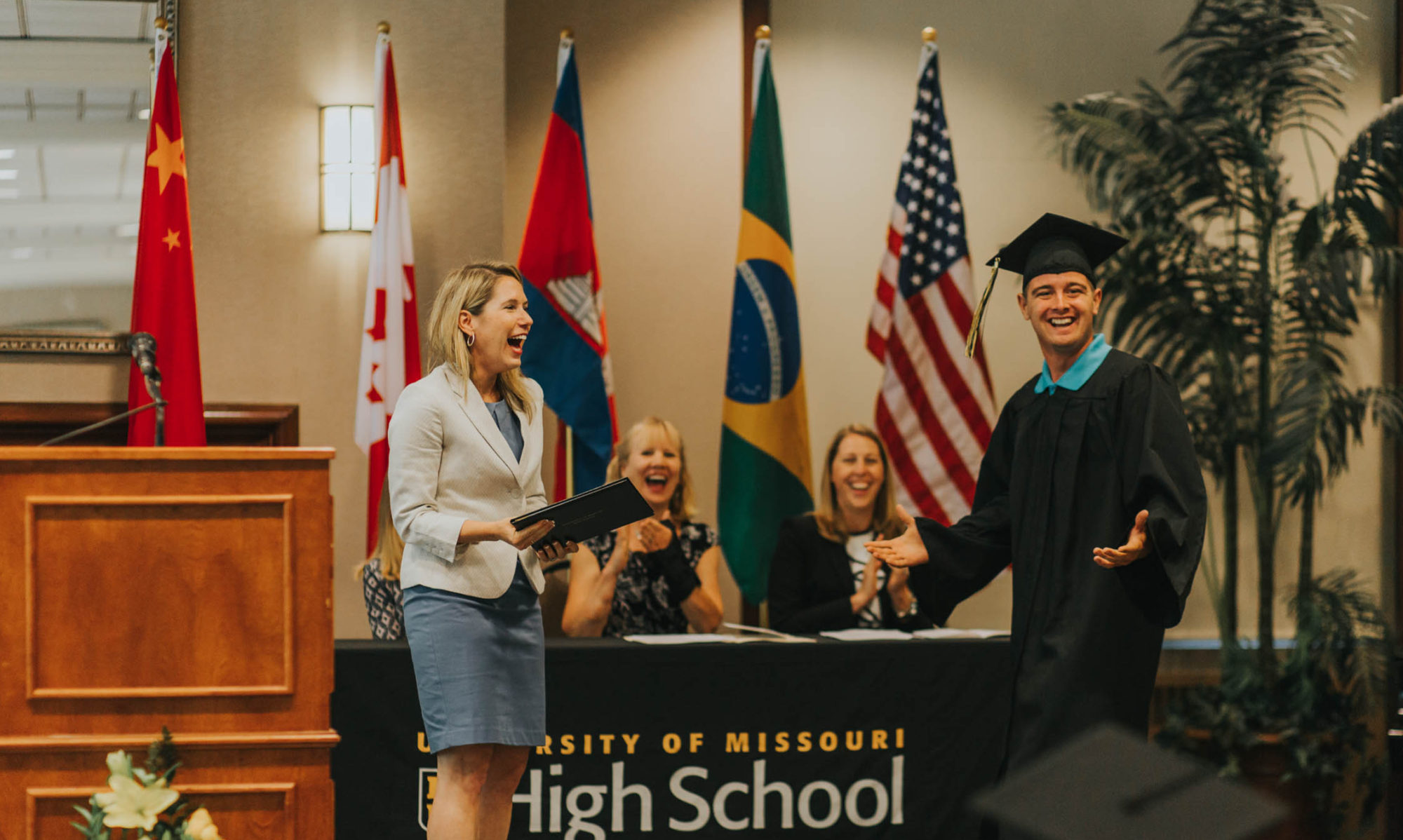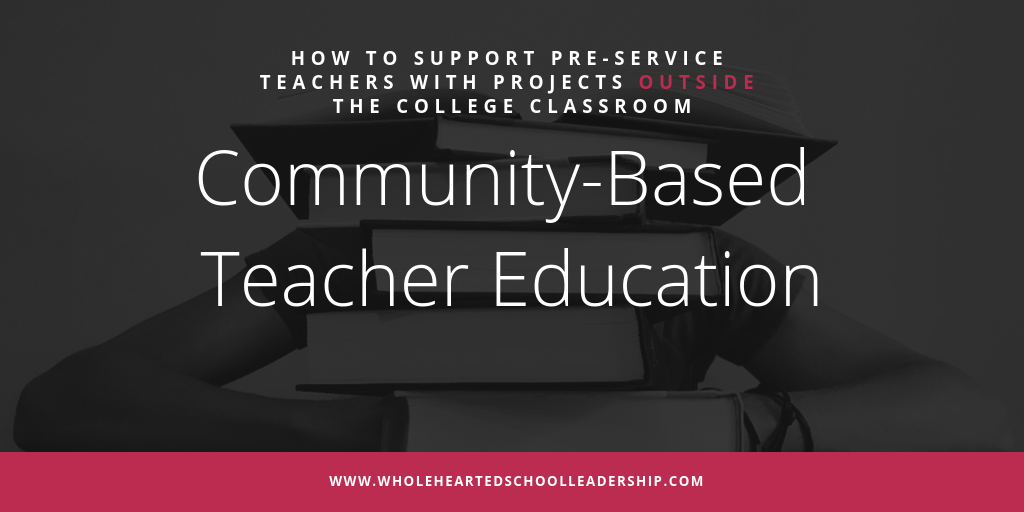How to Support Pre-Service Teachers with Projects Outside the College Classroom
There are 50+ future teachers in my Tuesday/Thursday university class. In the semester we spend together, I try to help these future teachers ready themselves for the arduous privilege of serving young people.
On the first day of class, we lay out dual purposes for our time together. First, we tell these bright-eyed sophomores, that our course lays a foundation for understanding the structure, history, and issues surrounding schools and teaching. Second, and this is where the course gets real, we tell everyone that we will investigate the complicated and challenging nature of what it means to teach in a diverse world.
By this point, I am so excited for another semester learning with future teachers that my enthusiasm startles everyone from my partner teacher to the scholars scattered across the lecture hall. I go off script, laying the groundwork for what it means to be a culturally responsive teacher. I announce that while our syllabus is dense, it can be summarized with two main ideas: relationships and representation.
I close that first day with a thought experiment asking everyone to remember the teacher who made the most difference for them. We share stories that are often emotional about educators who saw us, believed in us, made us feel included and valued as both learners and human beings.
It all comes back to relationships and representation.
The cornerstone project for the class asks everyone to closely examine their biases, connect with cultural gatekeepers in our local community, and to enter new spaces to learn with groups they haven’t engaged with previously. Sometimes this looks like students attending a Friday service at our Jewish Center on campus, coaching basketball with the Special Olympics, attending a parent group for rainbow families, meeting with a high school GSA (gay-straight-alliance), serving children food at an afterschool program for under-resourced youth, etc.
This is delicate work. How do we prepare 50+ future teachers to enter these spaces and to engage in these conversations in ways that honor reciprocity, build bridges, and humanize everyone involved? This is the central teaching question of the class. We do a lot of pre-work. We all attend Safe Space training with the LGBTQ Center. I bring in countless guest lecturers and panelists who engage us with
And then at a certain point, we have to set the pre-service teachers out on their own learning paths. While I hope they are ready, I also know some mistakes will be made. Someone will use incorrect pronouns, enter the mosque through the wrong entrance, or forget what I’ve taught them about people first language. We talk about how to recover, how to apologize immediately, and then try again the right way. What a great lesson to learn on your path to becoming an inclusive teacher.
Ground Rules for Community-Based Teacher Education Projects
As we think together about how to learn beyond our Tuesday/Thursday lecture hall, I offer my class the following guidance:
- Space is often scared. Marginalized people do not always have the same access to safe spaces. When you enter these new spaces, remember you are a guest.
- Relationships matter. All learning happens through
connection . - Center reciprocity. Seek ways to give as much (or more) than you receive. Express gratitude. Find ways to be helpful in the moment and beyond.
- Seek to understand more than
be understood. We areengaging in this work to listen more than to be heard. - Stretch outside your cultural comfort zone. You neither learn nor grow when you play it super safe. We have to risk being uncomfortable to improve. This is true in everything from math to teaching.
- Leverage and extend your current experiences. Many of you are participating in service learning, field experiences, or other projects in the College of Education. View those experiences from the perspective of our class to find additional opportunities to extend your learning. Can you give a lesson? Host a family night? Attend home visits? Set-up an event?
- Engage in courageous conversations. With hope,
along yourjourney you will meet many educators who you might not have realized were teaching you. Remember, wisdom is ubiquitous. You can learn important lessons from everyone you meet. Listen to young children. Listen to support staff. Listen to those who are hurting or whom you might have ignored. - Serve
at an organization. Engage in this work because you want to make a difference. Teachers are powerful change agents. You don’t have to wait to start serving others and you will never learn more about relationships and representation than you do when you learn through service. - Attend events. We are part of a vibrant campus community where there are constantly meaningful events happening. When you attend one of these events, be fully present. Arrive on time. Stay the whole time. Put your phone away. Look for ways to be helpful and engaged.
- Read constantly. Literature, story, and dialogue are great places to begin this work. Read stories and research by people in the communities you want to learn more about. As you read these works: make connections, ask questions, and consider your takeaways as both human beings and teachers.
- Consider additional communities where you already have
rapport . You belong to many communities already. Perhaps you play a sport, attend a house of worship, or belong to Greek Life. Think about how you can leverage the communities to which you already belong to meet new people, serve, and build bridges. - Learning is a journey. You won’t complete that journey in our 16 weeks together or even before you graduate. With hope, we are always journeying, always learning new ways to make connections, to be of service, to be more effective teachers and human beings. I don’t expect you to have this all figured out by the end of the semester; instead, my dream is that you will have made some progress and put together some plans to keep making progress.
- Remember, you represent our university, the College of Education, our class, and the teaching profession. When we go into new communities, we bring our communities with us. Make us proud.
Yes, there is a lot of ground we can cover inside the four walls of our lecture class, particularly when we enhance that space with our own lived experiences, decades of research, and the power of the internet. However, there is also a lot we simply cannot cover within the four walls of our classroom.
If we want to prepare teachers to teach in diverse communities, we simply have to spend time in diverse communities.
I am grateful for all of the organizations, houses of worship, classrooms, and after-school programs that have invited my college students in. I know the lessons these future teachers have learned in these spaces will help them build bridges in their own classrooms. The old adage is right, it really does take a community to raise a teacher.
Encouragingly yours, Dr. KFW
Each semester, the college students I learn with, inspire me, challenge me, and give me hope for our future classrooms.

